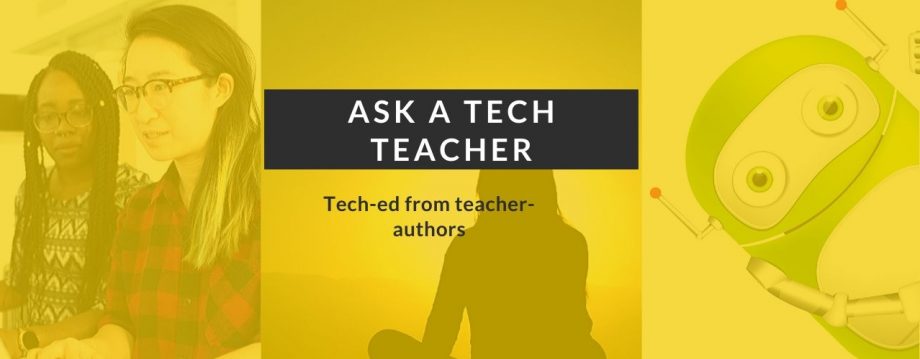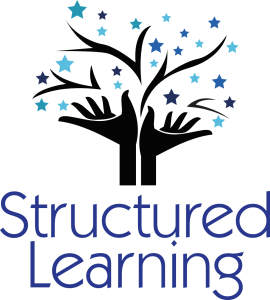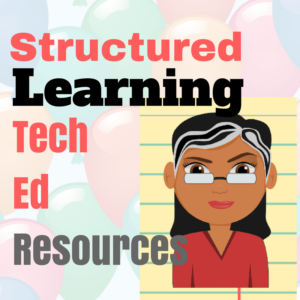 This is always challenging, isn’t it? Finding evidence that students have learned what you taught, that they can apply their knowledge to complex problems. How do you do this? Rubrics? Group projects? Posters? None sound worthy of the Common Core educational environ–and too often, students have figured out how to deliver within these guidelines while on auto-pilot.
This is always challenging, isn’t it? Finding evidence that students have learned what you taught, that they can apply their knowledge to complex problems. How do you do this? Rubrics? Group projects? Posters? None sound worthy of the Common Core educational environ–and too often, students have figured out how to deliver within these guidelines while on auto-pilot.
Where can we find authentic assessments that are measurable yet student-centered, promote risk-taking by student and teacher alike, inquiry-driven and encourage students to take responsibility for his/her own learning? How do we assess a lesson plan in a manner that insures students have learned what they need to apply to life, to new circumstances they will face when they don’t have a teacher at their elbow to nudge them the right direction?
Here are some of my favorite approaches:
Anecdotally
I observe their actions, their work, the way they are learning the skills I’m teaching. Are they engaged, making their best effort? Do they remember skills taught in prior weeks and apply them? Do they self-assess and make corrections as needed?
Transfer of knowledge
Can students transfer knowledge learned in my class to other classes and/or other parts of their life? Do I hear fun stories from parents and teachers about how students used something learned? Do the students themselves share a snippet with me about how they ‘helped mom use Google Maps to find…”
Teach others
Are students comfortable flipping learning and becoming the teacher? There’s a hierarchy of learning that goes like this:
- Student doesn’t listen
- Student doesn’t believe
- Student tries it once
- Student remembers it
- Student shows it to others
- Student teaches others
Like Maslowe’s Hierarchy of Needs, the highest praise is that students teach the skill to others. That’s learning.
I encourage it in my classes by having the lab open during recess and lunch, but with students as helpers. I only take 1-2 and always have more offers than I need.
Verbalize
Can students use the right words to share answers? No umms, no hand motions, no giggles. Can they take a deep breath and share their knowledge in a few succinct sentences? This works well on a Discussion Board which I use as a summative for vocabulary and problem solving tests. I set up a discussion board, ask each student to add a problem or vocabulary word we covered, and then comment on a classmate’s. They can then use this resource during the test. We’ve done it a few times and students have figured out if they blow off the Discussion Board part of the assessment, everyone suffers. Friends don’t have the study guide, or worse, the answer’s wrong because classmates didn’t take the time to write it correctly.
Portfolio
I like portfolios, but today, that means digital. Collect all student work onto wikis, digital lockers, Box.net, via embed widgets or screen shots or the original software. Keep it in the cloud where students, teachers, even parents can access it. That’s transparency. No one will wonder what grade the student earned
Summarize knowledge
But not in an essay. Use knowledge to create a magazine, an Animoto video, a Puzzlemaker crossword (click Great Resources for ideas). It’s the ‘use’ part of assessment that’s most important. Can students use the knowledge or does it just sit in a mental file folder?
Oral presentations
This can be summative, formative, informational, or informal. It can be a quick answer to questions in the classroom, coming up to the Smartscreen and solving a problem, teaching classmates how to solve a problem during class, or preparing a multimedia presentation to share with others online or in person. It includes much more than an assessment of learning. It judges a student’s presentation skills, ability to talk to people–life skills fundamental.
In the end, the choice of assessment depends upon the goal of teaching. Which works best for you?
Click for 30 K-5 technology lessons that align with Common Core State Standards.
Jacqui Murray has been teaching K-8 technology for 15 years. She is the editor of a K-8 technology curriculum, K-8 keyboard curriculum, K-6 Digital Citizenship curriculum, and creator of technology training books for how to integrate technology in education. She is the author of Building a Midshipman, the story of her daughter’s journey from high school to United States Naval Academy. She is webmaster for six blogs, an Amazon Vine Voice book reviewer, Editorial Review Board member for Journal for Computing Teachers, presentation reviewer for CSTA, Cisco guest blogger, a columnist for Examiner.com, Technology in Education featured blogger, IMS tech expert, and a monthly contributor to TeachHUB. Currently, she’s editing a techno-thriller that should be out to publishers next summer. Contact Jacqui at her writing office or her tech lab, Ask a Tech Teacher.

























Pingback: 7 Common Core Ways to Assess Knowledge | Common Core & School Libraries | Scoop.it
Pingback: 7 Common Core Ways to Assess Knowledge | Leading Schools | Scoop.it
Reblogged this on Plain Ed Tech Guy and commented:
It definitely is time to move away from traditional assessments and actually find out how their learning has impacted and benefiting their lives.
LikeLike
How do you do it? I get a lot of good ideas from your blog so I’m interested in your thoughts on assessment of knowledge and transfer.
LikeLike
Pingback: 7 Common Core Ways to Assess Knowledge | Common Core State Standards for School Leaders | Scoop.it
Pingback: Buenas prácticas para profesores que implementan la tecnología en sus clases | Maestros del Web
Pingback: 7 Common Core Ways to Assess Knowledge | iCt, iPads en hoe word ik een ie-leraar? | Scoop.it
Pingback: 7 Common Core Ways to Assess Knowledge | Education mhs | Scoop.it
Pingback: 7 Common Core Ways to Assess Knowledge | Education and a coffee klatch | Scoop.it
Pingback: 7 Common Core Ways to Assess Knowledge | Collaborate 2 Innovate | Scoop.it
Pingback: 7 Common Core Ways to Assess Knowledge | California Common Core - Middle School | Scoop.it
Pingback: 7 Common Core Ways to Assess Knowledge « Ask a Tech Teacher | Common Core Thinking | Scoop.it
Pingback: 7 Common Core Ways to Assess Knowledge | Learning Theory, Problem Solving, Teaching and Research | Scoop.it
Pingback: Integrating technology into curriculum for common core | Mr. Halls front porch setting space.
Pingback: 11 Ways to be an Inquiry-based Teacher « Jacqui Murray
Pingback: 11 Ways to be an Inquiry-based Teacher | Ask a Tech Teacher
Pingback: 11 Ways to be an Inquiry-based Teacher « Ask a Tech Teacher
Pingback: 11 Ways to be an Inquiry-based Teacher | Ask a Tech Teacher
Pingback: 11 Ways to be an Inquiry-based Teacher | Ask a Tech Teacher